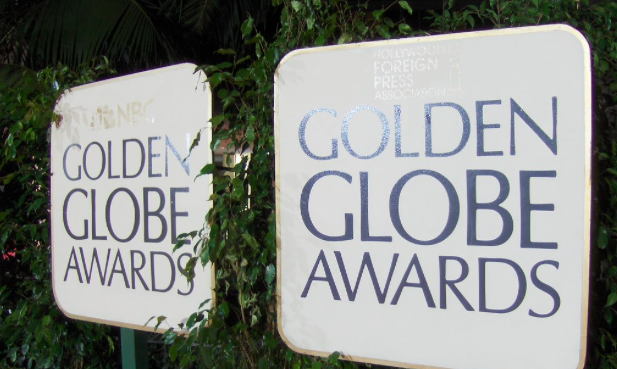Opinion: The Golden Globes Were Justly Canceled
“Golden Globe Awards” by Joe Shlabotnik
Next year, Hollywood will get a glance of what a world without the Golden Globes would look like.
May 27, 2021
Every year at the beginning of January, the boozy, historically “loose” precursor to the Oscars takes Hollywood by storm: The Golden Globes.
A win or even just a nomination from this award show can reflect well on actors, directors, and production teams alike. Even moreso, it may indicate exactly who audiences should be eyeing for the Academy Awards.
Yet despite the glitz and glamour, award shows have faced a slew of backlash over the years–and the Globes are no exception.
Prior to this year’s event, the Golden Globes were already facing criticism regarding the multiple nominations for Sia’s “Music,” a movie denounced for misrepresenting the autistic community.
On May 10th, NBC finally pulled the plug on next year’s Golden Globes. The network made a bold but wise announcement that they would not be telecasting the 2022 awards due to ethical lapses and lack of racial diversity.
There have been concerns about the lack of diversity in the show and the Hollywood Foreign Press Association—the group of international journalists in charge of voting on the awards—for a long time.
But, an exposé published in the Los Angeles Times on the eve of this year’s event brought these concerns into an even brighter light, accusing the group of corruption and even possible illegal activity.
The investigation revealed that the seemingly harmless HFPA consistently takes improper advantage of economic opportunities.
The NBC deal gave the group unchecked power; it allowed the group to remain small with just 87 members, maintaining it’s aristocratic nature and giving celebrities and studios the opportunity to court their votes.
The most glaring issue, however, is the racial make-up of the HFPA. The organization has always kept its membership roster secretive, not publishing it on their website.
Now we know why: of the 87 members of the organization, not one of them is black.
The issues within the organization are clearly represented through the outcome of the awards. This past year, black ensembles like “Ma Rainey’s Black Bottom” and “One Night in Miami” were not celebrated at all by the Golden Globes.
This issue goes far beyond the upset of losing a trophy; it is a systemic issue that snubs recognition from well-deserving actors and filmmakers.
“The fact that there is not [black] membership I think is why the Hollywood Forgein Press has not understood how important what is going on is going on,” actress and activist Tonya Williams said, addressing the blind spot that the HFPA has.
Soon after the release of the LA Times article, the Golden Globes released an initial 18-month reform plan to combat the accusations against them.
This plan immediately faced backlash. Calls for boycotts gained widespread support within the industry; studios like Netflix, Amazon, WarnerMedia, and Time’s Up announced that they would be cutting ties with the HFPA until concrete changes were made.
Actor Mark Ruffalo called out the Globes via Twitter for their resistance against change, saying that he “cannot feel proud or happy about being a recipient of this award.”
Actress Scarlett Johansson, in a statement to Variety, spoke out against “sexist questions and remarks” that have been constantly directed towards her at HFPA conferences. This has resulted in her distancing herself from the organization and urges the rest of the industry to follow suit.
Actor Tom Cruise made a stand by actually returning the three Golden Globes he has received over the years.
As a result, the HFPA released a new reform timeline of 15 weeks.
Still, the long overdue attempt at taking accountability is too little, too late.
The new timeline is too rushed to make meaningful change. Their “efforts” feel like an act of tokenism; empty promises to salvage their name, cleaning off the tarnished gold, if you will.
NBC’s response of not telecasting the event in 2022 was smart. The ethical lapses have gone on for too long with little to no consequences except increasingly low ratings.
This, however, begs the question of whether NBC would have still pushed these changes if the ratings didn’t go down?
NBC is fueled by the fact that ratings and viewers have decreased dramatically. This past year’s Golden Globes had the lowest rating and least amount of viewers in the history of the show. It is easy to speculate that the network used the decline in popularity as an opportunity to advocate for change.
The criticism for lack of diversity goes beyond just the Golden Globes, as it is a prevalent issue with the Oscars.
Both award shows have seen consequences as the ratings and viewership have dropped dramatically.
A major difference, however, is that compared to the Golden Globes’ measly 87 members, The Academy is made up of over 9000 members. This allows for a higher chance of ensured diversity and various perspectives, to name one of the benefits.
Regardless, there are still diversity concerns regarding the Oscars. In 1990 Spike Lee’s “Do The Right Thing,” a striking story about police brutality and racism, was inexplicably missing from the Best Picture nominees.
A set of 20 all-white acting nominees in 2015 jump started a conversation about lack of diversity within the Oscars. Since then, the show has continuously and rightfully been called out for its failings.
In September of last year, The Academy announced some changes that seek to encourage representation and casting of racial and ethnic minorities, women, the LGBTQ+ community, and people with cognitive and physical disabilities.
Yet, until these plans are actually upheld and continue, they will stay virtually meaningless.
Last year, however, South Korean filmmaker Bong Joon-ho directed “Parasite” featuring an all-asian ensemble and well-deservedly took home the award for Best Picture. This past year, Korean-American director Lee Isaac Chung’s “Minari” rightfully received 6 nominations including best picture.
The scrutiny placed on the HFPA will hopefully rub off on all award shows alike and encourage crucial changes to be made across the entertainment industry as a whole.
The audience that awards shows play to has changed; it is time to reinvent our thoughts about these shows as a whole and make authentic, transformative change.
We as an audience know how to roar for what we like on screen; we need to do the same for off-screen injustice.







